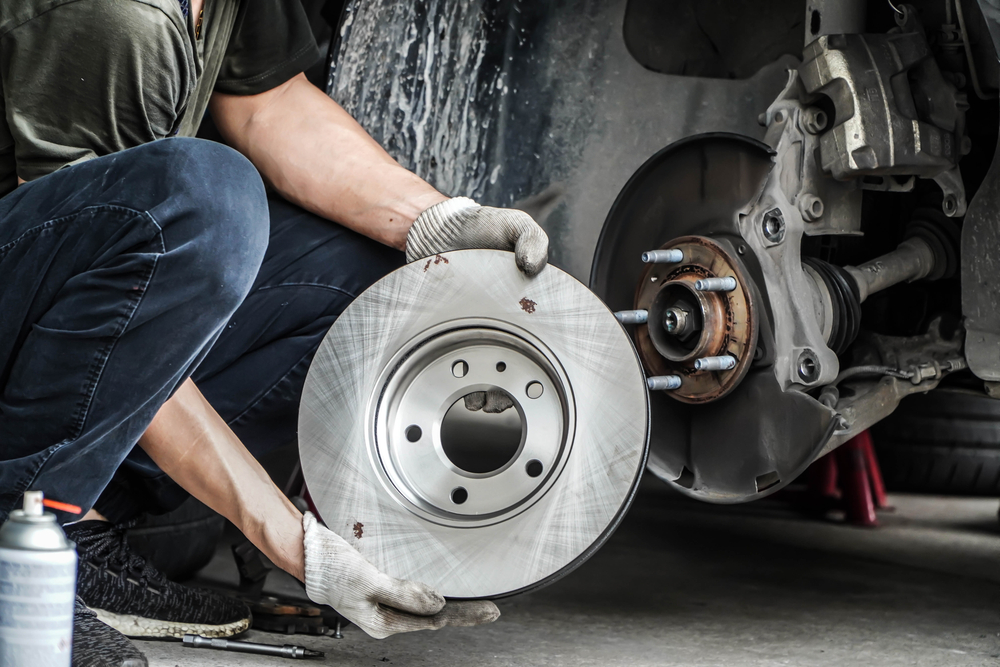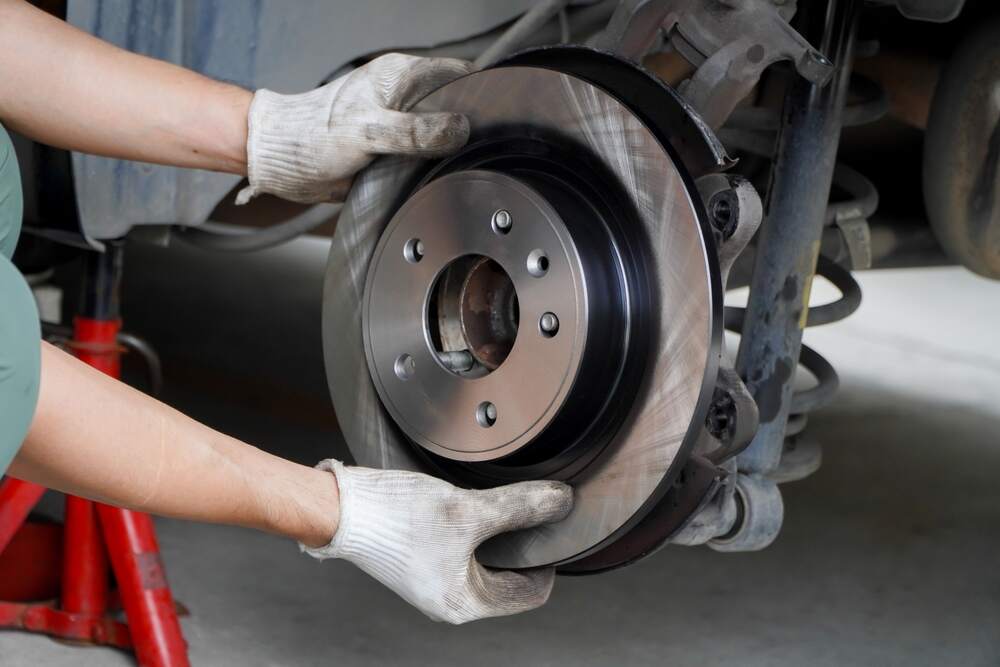How long do brake discs last?
Does your car have brake discs? This is no surprise as brake discs are the modern and popular braking system used in the majority of cars today. Given nearly every car owner will encounter a brake disc these days, you probably want to know how often they need to be replaced. In normal driving conditions, it’s safe to assume that your brake discs will last close to the estimated service interval timeframe.
However, this is just a recommendation and you should definitely take action if you think something is wrong. If you hear a grinding noise or other brake noise, it might be time to visit the mechanic. We’ll cover more about common signs and symptoms below, so be sure to keep reading.
When do brake replacements happen?
Since brake discs (also known as brake rotors) utilise wearing components like brake pads, both will inevitably need to be replaced periodically. For car owners, it’s figuring out a matter of when. A good rule of thumb is to check your brake discs around every 100,000 km. Most cars will have a regular service interval to adhere to which suggests when you should check and replace, you can find this in your owner’s manual. However, not all cars are the same and neither are their drivers. It depends on a variety of factors including: How often do you drive
- How far you drive (e.g. motorway driving vs city driving)
- What conditions do you drive in
- What type of driving do you engage in (racing vs commuting vs off-roading etc.) For example, regular aggressive braking will reduce the discs’ lifespan.
Based on your driving style, you can roughly estimate how long your brake rotors will last and also when you will need replacement rotors. If you’re having trouble determining when is best to get your brakes checked or you suspect a component is abnormally worn, get in touch with your mechanic as soon as possible. Speak to the Natrad team today for specialist advice on your brakes. Procrastinating on brake problems, even minor ones, can lead to dangerous incidents and unsafe braking performance.

Brake disc signs and symptoms
If your brakes are not due for a service, but something seems off, you could be experiencing premature wear or failure. Read below for some common signs and symptoms that you need a replacement:
- Extreme warping: due to excessive heat, the brake disc can become warped, leading to abnormal wear and performance. This may be noticed as a vibration felt through the brake pedal or steering wheel during braking. If you feel that your brakes are not working as efficiently as normal, it’s best to get things checked by a professional.
- Warning light: Usually, worn brake pads may be indicated by a warning light on the dashboard or a squealing sound from a small metal wear indicator tab built into the brake pad. If they become too worn the metal backing plate can begin scraping against the disc, which could also require a replacement of the discs.
- Brake pedal feel: if there is a change in how the brake pedal feels, soft & spongy or you require excessive force to brake – something’s wrong. A soft brake pedal is especially dangerous as you may have lost pressure in the brake fluid and lines, making it hard for the brakes to respond. Seek help immediately.
- Noisy brakes: some squeaking is normal but if you hear grinding or loud squealing, it might be more sinister. Your brake pads may be worn or the wear indicator could be scraping against the brake discs.
- Control: if you are veering to one side and you have to use the steering wheel frequently to correct direction during braking, have your brakes and tyres checked. You might also experience vibrating or juddering when pressing the pedal.
If any of this sounds familiar, make sure to book into your local Natrad as soon as possible. Ignoring brake problems is not safe either for you, or other drivers on the road.
What do you need to replace brake discs?
To replace brake discs and pads, you will need the right tools and equipment, including:
- A car jack and jack stands
- A lug wrench and socket set
- A torque wrench
- New brake discs and brake pads
- Brake cleaner
Start by safely lifting and securing the vehicle with the car jack and jack stands. Remove the wheels using the lug wrench, then remove the brake pads, caliper and brake disc. Use brake cleaner to thoroughly clean the caliper and the new disc (to remove any protective oil residue) Then after the new disc is installed, it’s important to:
- Replace or inspect the brake pads
- Reassemble everything carefully
- Ensure all bolts are tightened to the manufacturer’s specifications
When you decide to change your brake discs, ensure you get a quality set of brake components. Brake pads tend to wear out faster than discs, so if your pads need replacing, it’s wise to check the discs as well. A good rule of thumb is to check the minimum thickness of your brake discs regularly. If they fall to or below the minimum thickness specified by the vehicle manufacturer, they need changing. Remember, new brake discs can help your vehicle’s braking system perform better and discs last longer when paired with quality brake pads.
Can I change brake discs myself?
While it’s possible to change brake discs yourself if you have the right tools and mechanical knowledge, it can be a complex and time-consuming task. Brake systems are critical for your vehicle’s safety, and even small mistakes during replacement can lead to poor performance or costly damage. For peace of mind and professional-quality results, it’s better to trust the specialists at Natrad. Their skilled technicians ensure your brake discs are replaced safely and efficiently, giving you confidence in your vehicle’s reliability.

Get assistance with your brake discs at Natrad
Is your service interval coming up, or maybe you sense an issue with your brakes? No problem. Ensure your vehicle’s safety and performance by getting professional assistance with your brake discs at Natrad. Our experienced technicians are proficient at brake disc replacement and servicing, using high-quality brake parts to keep your system in top condition. Whether you’re noticing reduced braking efficiency or unusual noises, our team can diagnose and resolve the issue quickly and effectively. Don’t leave your safety to chance—trust Natrad to deliver reliable, professional service tailored to your needs. Visit your nearest Natrad workshop or book an appointment online today and drive with confidence!









